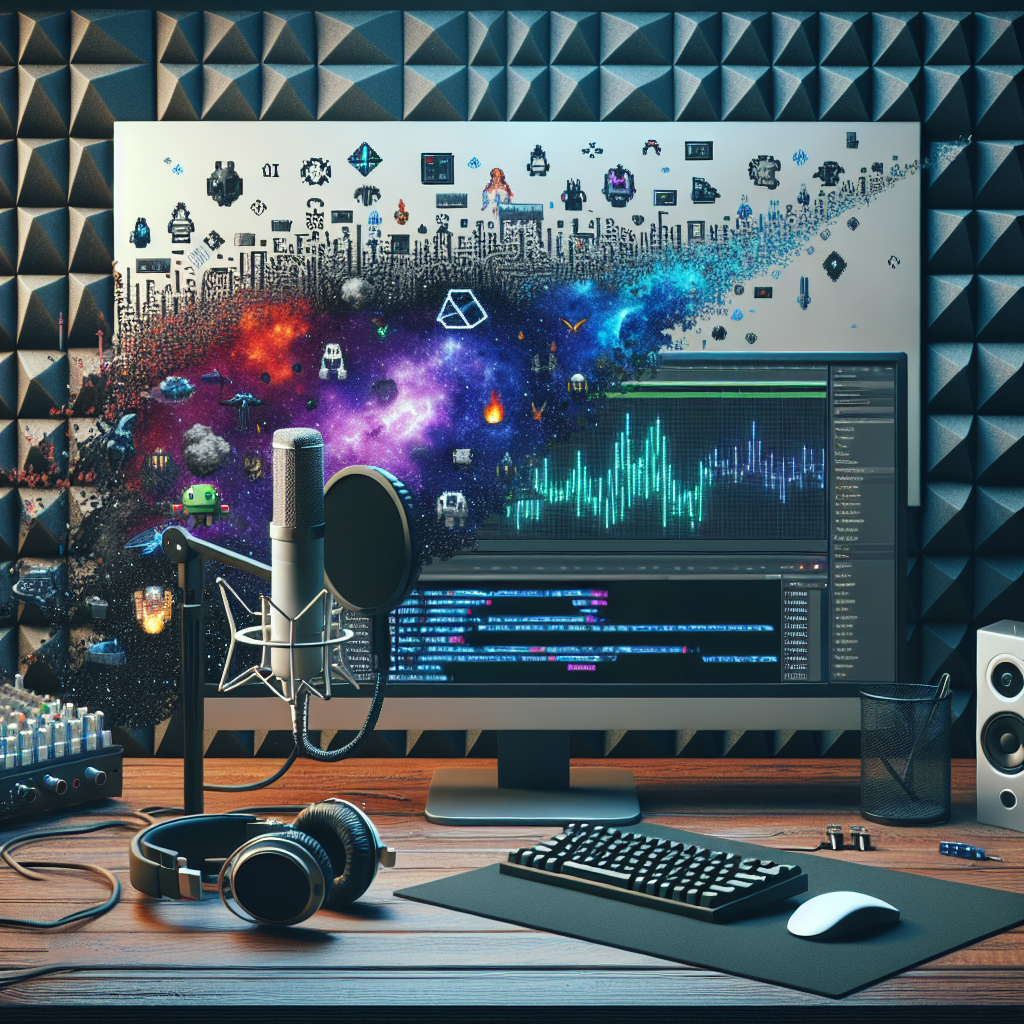Artificial Intelligence (AI) has revolutionized many industries, and the world of video games is no exception. One area where AI is making a significant impact is in game voice acting and dialogue generation. In this article, we will explore how AI is being leveraged in these areas and the benefits it brings to game developers, voice actors, and players.
AI in Game Voice Acting
Traditionally, game voice acting involved hiring actors to record lines of dialogue for characters in a game. This process could be time-consuming and expensive, as actors had to be brought into a studio and directed by a voice director. With the advent of AI, however, this process has been streamlined and improved in several ways.
One way AI is being used in game voice acting is through the creation of virtual voice actors. These AI-driven systems are capable of generating realistic-sounding dialogue based on text input. This can save time and money for developers, as they don’t have to hire human actors for every line of dialogue. Virtual voice actors can also be customized to fit the tone and style of a game, providing greater flexibility for developers.
Another way AI is being used in game voice acting is through voice modulation technology. This technology allows developers to alter the pitch, tone, and accent of a voice actor’s performance, creating a wider range of character voices without the need for multiple actors. This can be especially useful in games with large casts of characters or in games that require characters to speak multiple languages.
AI in Dialogue Generation
In addition to voice acting, AI is also being leveraged in dialogue generation for games. Dialogue is an essential part of the gaming experience, providing context, story progression, and character development. AI-powered systems can help generate dialogue that is more dynamic, engaging, and responsive to player choices.
One way AI is being used in dialogue generation is through natural language processing (NLP) technology. NLP algorithms can analyze text input and generate natural-sounding dialogue that fits the context of the game. This can be particularly useful in games with branching storylines or open-world environments, where dialogue needs to adapt to player choices and actions.
AI can also be used to improve the quality and diversity of dialogue in games. By analyzing vast amounts of text data, AI can generate dialogue that is more varied, nuanced, and contextually appropriate. This can help create more immersive and engaging game worlds that feel more alive and dynamic.
Benefits of Leveraging AI for Game Voice Acting and Dialogue Generation
There are several benefits to leveraging AI for game voice acting and dialogue generation. Some of the key advantages include:
1. Cost savings: AI-driven systems can reduce the costs associated with hiring human voice actors and recording studios. This can help smaller game developers with limited budgets create high-quality voice acting and dialogue for their games.
2. Time efficiency: AI can generate dialogue and voice acting more quickly than human actors, allowing developers to iterate on their game content faster and more efficiently. This can help speed up the game development process and get games to market more quickly.
3. Flexibility: AI-powered systems can be customized to fit the specific needs of a game, allowing developers to create unique and compelling characters and dialogue. This flexibility can help developers create more immersive and engaging game worlds that resonate with players.
4. Quality improvement: AI can help improve the quality of voice acting and dialogue in games by providing more natural-sounding performances and dynamic dialogue. This can enhance the overall gaming experience and make games more memorable and enjoyable for players.
FAQs
Q: Can AI completely replace human voice actors in games?
A: While AI can generate realistic-sounding dialogue, human voice actors still bring a level of emotion, nuance, and authenticity that AI may struggle to replicate. Human voice actors are likely to remain an essential part of the gaming industry for the foreseeable future.
Q: How does AI ensure diversity and representation in game voice acting?
A: AI can help generate a wider range of character voices and dialogue, allowing for more diverse representation in games. Developers can use AI to create characters from different backgrounds, cultures, and languages, helping to promote diversity and inclusion in gaming.
Q: Are there any ethical concerns around using AI in game voice acting and dialogue generation?
A: As with any technology, there are potential ethical concerns to consider when using AI in game development. These may include issues around data privacy, algorithm bias, and the impact on human voice actors. Developers should be mindful of these concerns and work to address them responsibly.
In conclusion, AI is transforming the world of game voice acting and dialogue generation, offering new possibilities for developers, voice actors, and players alike. By leveraging AI-powered systems, developers can create more immersive, engaging, and dynamic game worlds that push the boundaries of storytelling and player interaction. As the technology continues to evolve, we can expect to see even more innovative uses of AI in game development, shaping the future of gaming in exciting ways.

